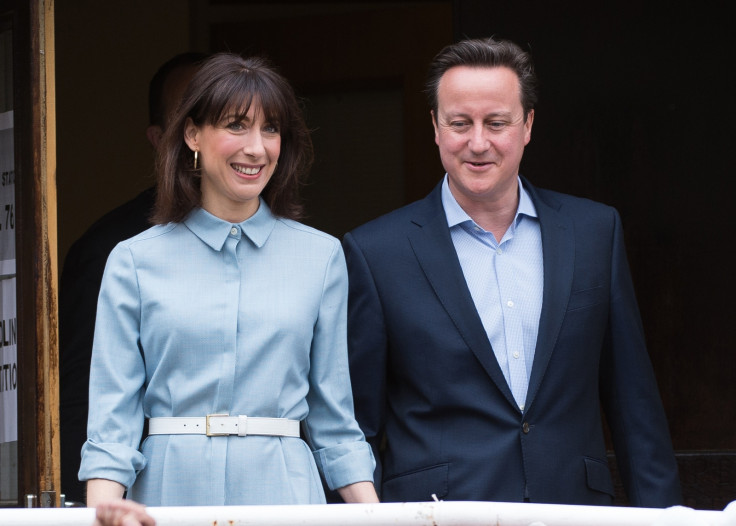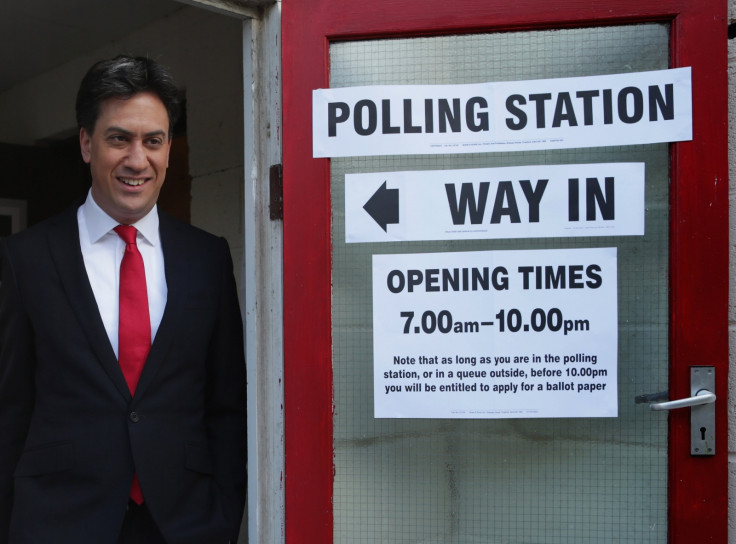Election 2015: Conservatives on course to win amid Labour wipe-out in Scotland at hands of SNP

The Conservatives will win the general election off the back of a Labour wipe-out in Scotland and a collapse in the number of Liberal Democrat seats, according to an exit poll for the major broadcasters.
A survey by NOP/Mori for BBC, ITV and Sky forecasts the Conservative party to win 316 seats, just seven short of a majority. The Labour Party would have 239 seats, the Scottish National Party (SNP) 58, the Liberal Democrats 10, Plaid Cymru 4, Ukip 2, Greens 2 and others 19.
It suggests the Conservatives will have the best chance of forming a government, if the exit poll is accurate, if they can team up again with the Lib Dems for a new coalition and shore it up with support from the DUP in Northern Ireland.
But Labour could still form a government with the SNP if Cameron fails, though the party leader Ed Miliband has consistently ruled out doing any formal deal with the Scottish nationalists.
Voting has now closed. The ballot boxes at each polling station will be taken to the location of the count where officials are waiting in every constituency to tot-up the votes in what could be the closest general election for a generation.
A hung parliament will mean tough negotiations between like-minded major and minor parties to form a government, with either Cameron Miliband at the helm at prime minister.

The Conservative party has campaigned hard on the UK economic recovery, arguing that it is a blend of its public spending cuts to restore credibility to Treasury finances, tax cuts and welfare reform that has driven this GDP growth.
Labour claims the Conservatives austerity programme has hit the poorest hardest and that the headline recovery is only benefitting those at the top. It has also put the NHS front and centre of its campaign, claiming the Conservative-led coalition has driven it into crisis with botched reforms.
The Liberal Democrat party is pitching itself as sitting in the reasonable centre ground of politics that would temper Labour or Conservative excesses as part of another coalition government. But the party's reputation has been badly damaged by a notorious broken promise on tuition fee rises.
Ukip, the populist eurosceptic party, has gone from strength-to-strength over the past couple of years, picking up hordes of councillors, MEPs and a couple of MPs via defecting Conservatives. It is demanding the UK leave the EU so it can control immigration tightly. But despite its growing popularity, it looks likely to only pick up a handful of MPs at best.
In Scotland, the Scottish National Party (SNP) has had a surge in support off the back of the independence referendum in 2014 and a general anti-Westminster sentiment. Its anti-austerity campaigning will see it pick up dozens of seats in Scotland, mostly at Labour's expense.
Other minor parties hoping to do well amid the decline of two party politics in Britain are the Greens and Plaid Cymru, the Welsh nationalists.
© Copyright IBTimes 2025. All rights reserved.






















